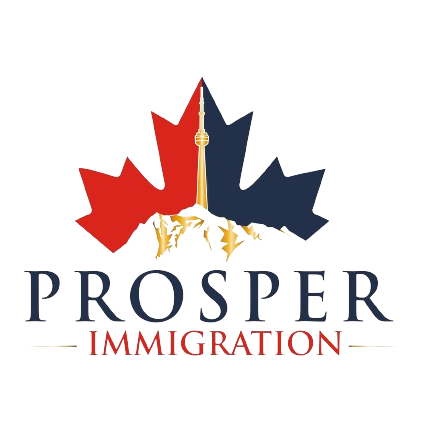Program for international mobility
To work in Canada, many foreign people are not required to complete a labor market impact assessment (LMIA). The international mobility program is sometimes known as LMIA-exempt foreign laborers (imp). A person is not immune from needing a work visa only because they are exempt from an LMIA.
Introduction
It can be challenging to navigate Canada’s work permit possibilities, but we want to make it as simple as possible for you. With more than 45 years of experience, cohen immigration law is a preeminent Canadian immigration law practice.
The temporary foreign worker program (TFWP) covers foreign workers who must pass the labor market impact assessment (LMIA), a labor market test required by the Canadian government (TFWP). On the other hand, international employees who don’t need an LMIAare covered by the international mobility program (IMP).
When there are no qualified Canadian candidates for the position, the TFWP enables firms in Canada to engage foreign employees. The IMP’s primary goal is to advance Canada’s diverse economic, social, and cultural interests. Since the imp has larger policy objectives, the Canadian government does not apply the LMIA procedure to foreign persons who fall within any of the imp’s streams.
The international mobility program’s (imp) most popular LMIA-exempt streams are listed below. The sections on this page are as follows:
- Significant advantage
- Mutual employment
- Workers in religion and charity

Significant Advantage
Aside from the circumstances described in the next section, Canadian visa officers may decide that it is preferable to issue a work permit to a foreign national without obtaining an LMIA. The significant social or cultural advantage is what this is.
The foreign national’s projected contribution to Canada must be considerable, which means it must be noteworthy or significant. Officers often depend on any objective facts presented and the testimony of reputable, reputable, and distinguished specialists in the foreign national’s profession. The past performance of the foreign national is a reliable indicator of their level of accomplishment.
Measures that are considered objective for substantial social or cultural gain
- An authentic transcript from a college, university, school, or other institution of higher learning demonstrating the foreign national’s possession of a degree, diploma, certificate, or comparable award in the field of their expertise;
- Documentation from the foreign national’s present or previous employers demonstrating that they have substantial full-time experience in the position for which they are applying (significant in this context can be considered to mean ten or more years of experience);
- Has won accolades at the national or international level or holds a patent;
- Evidence of affiliation with organizations that demand excellence from its members.
- Having evaluated other people’s work;
- Proof of accolades and notable contributions to the field from institutions like governments, businesses, or professional organizations;
- Evidence of the foreign national’s scholastic or scientific contributions to the field;
- Foreign nationals write publications in scholarly or professional journals
- Foreign national’s executive position in a prestigious organization.
Self-employed/business owners
Private entrepreneurs who want to relocate to Canada to launch or run a business temporarily may be given an LMIA exemption. To be eligible for one of these programs, applicants must own all or most of the companies they want to start in Canada. Additionally, they will need to show how their venture would significantly benefit Canada. Only those business owners who can prove that their work in Canada is temporary will be granted LMIA-exempt work permits.
Owners of seasonal businesses are particularly well suited for this category. In this category, LMIA-exempt work permits may also be available to entrepreneurs who have already submitted applications for permanent residence in Canada. Only those business owners who can prove that their work in Canada is temporary will be granted LMIA-exempt work permits.
Family members of foreign workers
Children and spouses of foreign workers with Canadian work permits for skilled positions are exempt from the LMIA requirement. Please note that this is not covered by spouses of employees participating in an international exchange program.
French-speaking professionals
Foreign nationals who are competent for employment in Canada under a national occupational classification (NOC) 0, a, or b and who have been recruited through a francophone immigration recruitment campaign coordinated by the federal government and francophone minority groups may be eligible. These foreign nationals must be headed for a province or territory other than Quebec.
Academics
Researchers, visitor professors, and guest lecturers are all included in this.
Provincial exemptions from LMIA
The requirement for an LMIA may not apply to employees who have received a job offer in a province that has nominated them for permanent residency.
Mutual employment
Reciprocal employment agreements let foreign workers work in Canada, where there are comparable opportunities for Canadians to work there.
International accords
Several international accords that make it easier for foreign employees to enter the country are parties to by Canada. An LMIA is not necessary for the admission of foreign employees under these agreements because it is thought they will significantly benefit Canada. The North American free trade agreement (NAFTA) illustrates this.
Programs for international exchange
A variety of youth exchange programs involve Canada as a participant. These initiatives include the working holiday visa for international experience Canada (IEC), student co-op programs, young professional programs, and teacher exchange programs. An LMIA is not required for these programs.
Religious and charitable work
Charitable employees
In the context of Canada, charitable activities are those that alleviate poverty, enhance education, or serve other socially beneficial goals. As a result, certain humanitarian employees can temporarily enter the Canadian labor market without needing an LMIA.
Being listed as a charity by the Canada revenue agency (CRA) clearly shows that a company is benevolent. However, under this LMIA-exempt provision, foreign workers can be permitted to work in Canada for a company that is not registered with the CRA; in this case, the visa officer might ask the employer for more details.
The Canadian government distinguishes between volunteers who do not require a work permit and charitable workers who must. A volunteer does not enter the workforce, and the volunteer’s presence in Canada is secondary to the trip’s primary goal. On the other hand, a charitable worker typically accepts a position involving a task that qualifies as employment in Canada and is eligible to receive payment for their efforts. They require a work permit, even though the LMIA procedure is unnecessary.


Religious personnel
The foreign national must typically be a member of or share the beliefs of the specific religious community where they desire to work or be able to teach or share other religious beliefs, as the employer requires, to be eligible for spiritual work.
The primary duties of the foreign national in this LMIA-exempt category should reflect a specific religious aim, such as religious instruction or support of a particular religion or faith.
The effort should involve upholding the beliefs and practices that form the foundation of a religious faith’s doctrines and advancing its spiritual teachings.
PGWP: Submit A Post-Graduation Work Permit Application
An application for a post-graduation work permit may be made by international students who complete a program in Canada that qualifies (PGWP). A PGWP lets you work for any business in Canada of your choice. After that, you can utilize this professional employment experience to support your application for permanent residency in Canada.
Overview
To draw in foreign students and keep them as immigrants, Canada provides a post-graduation work permit (PGWP). The PGWP is valid for a maximum of three years (the precise number of years a person has a PGWP will vary depending on how long their Canadian educational program was). An open work permit known as the PGWP enables foreign graduates to work for any Canadian firm without a job offer. The PGWP’s ability to help international graduates get professional work experience in Canada is one of its key advantages.
Such work experience is beneficial when PGWP holders later apply for immigration to Canada. Numerous of Canada’s over 100 distinct immigration programs honor applicants who have studied, worked, or both in the country. To qualify for a Canadian permanent residence program, a PGWP holder must have one year of professional work experience in a NOC code of 0, a, or b.
Can I attend school abroad and still qualify for a PGWP?
During the coronavirus epidemic, immigration, refugees, and Citizenship Canada (IRCC) has a unique policy in effect that allows international students to take online classes at a Canadian designated learning institution while still being eligible for a PGWP if all other conditions are met. DLIs are Canadian government-accredited colleges and universities that welcome international students.

-
What criteria are there for PGWP eligibility?
International students who wish to apply for a post-graduation work permit must possess the following:
- Completed a minimum eight-month-long academic, vocational, or professional training program at a qualifying designated learning institution (DLI) list.
-
Can Canada Surpass American Wealth?
The U.S., which has the most outstanding economy in the world as of 2020, has a considerably larger economy than Canada, even though Canada does have one of the largest economies in the world. The GDP of the United States was $21 trillion, whereas that of Canada was $1.6 trillion.
-
What Makes Canada So Rich?
Due to its robust and diverse economy, Canada is a prosperous country. Natural resources that are widely used across the world, such as gold, zinc, copper, and nickel, constitute a significant contributor to its economy. Canada is an essential player in the oil industry with several giant oil corporations. Along with an extensive real estate market, the nation boasts a sizable banking sector with several banks and other financial organizations.
To curb four-decade-high inflation, the Bank of Canada has increased its benchmark policy rate by more than two percentage points since March. On September 8, it is anticipated to increase it by at least another half-point.
The second quarter’s growth rate was even more significant than the central bank’s earlier this month predicted 4% annualized pace and indicates an acceleration from the first quarter’s 3.1% growth rate, which will further reinforce the notion that the economy needs higher interest rates.
Canada has profited from high oil, grain, and natural gas prices, while increased energy costs have severely impacted the world economy. The high first-half performance reflects the advantages of early reopenings this year, following severe Covid-related lockdowns last winter. Canada’s GDP grew more quickly in the first half of this year than any other G-7 country. The American economy, on the other hand, shrank in both quarters.
Overall, in conclusion, one of the largest economies in the world and a significant influence on international commerce, Canada is a highly developed country. Real estate, mining, and manufacturing make up its three main economic sectors, and some of the biggest mining companies in the world call it home. The U.S., China, and the U.K. are its top trading partners, and trade accounts for a sizable amount of its GDP.



